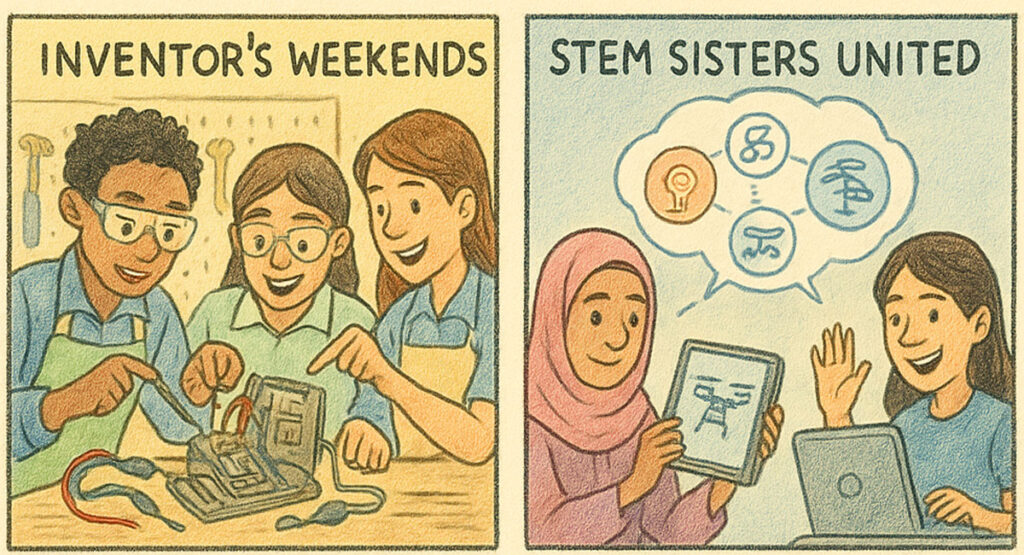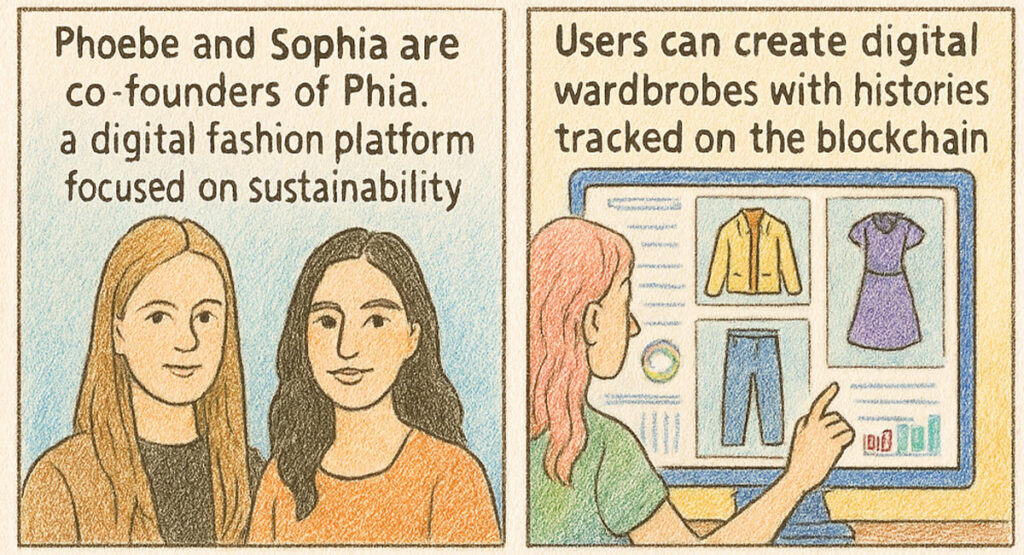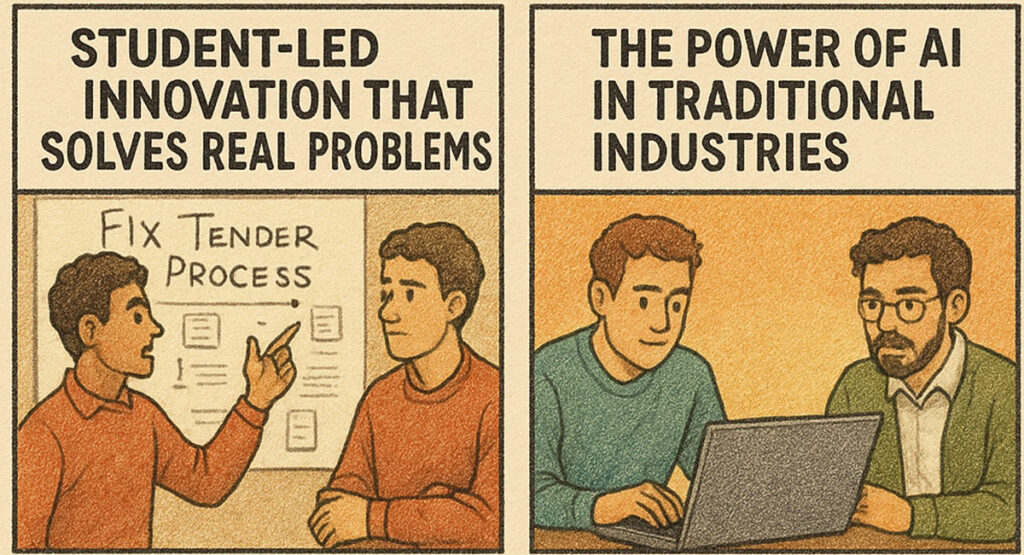Zach Yadegari’s story begins not in a lecture hall or boardroom, but in the quiet corners of his mind — where ideas pulsed with energy, and challenges felt more like invitations than obstacles. At just 18, when most teenagers were nervously checking acceptance emails and choosing dorm room décor, Zach was building Cal AI, a company that would defy the odds and generate $30 million in revenue within its very first year.
Born and raised in the USA, Zach was a thinker, a coder, and above all — a dreamer with the audacity to act. His brilliance shone early, maintaining a perfect 4.0 GPA and scoring an impressive 34 on the ACT, but life, as it often does, threw him a twist. Of the 18 colleges he applied to, 15 rejected him — a moment that would crush many. But for Zach, it sparked a revolution.
Instead of asking, “What did I do wrong?” — Zach asked a different question: “What if college isn’t the only path?” That mindset became the seed of Cal AI.
Building Cal AI
Cal AI wasn’t born in a Silicon Valley skyscraper. It began as a concept in Zach’s bedroom — cluttered with laptops, scribbled whiteboards, and coffee cups full of midnight ambition. He envisioned an artificial intelligence platform that wouldn’t just automate tasks but would redefine efficiency in enterprise workflows, transform business decision-making, and unlock human creativity.
While others waited for opportunity, Zach built it. He recruited a lean team of bright minds, some older than him, and infused the company with a youthful hunger that couldn’t be bought or borrowed. Cal AI’s early offerings—ranging from autonomous data analysis engines to adaptive customer service bots—weren’t just smart; they were revolutionary.
Word spread. Investors took notice. Clients lined up.
Within 12 months, Cal AI hit $30 million in revenue.
That kind of number for an 18-year-old founder wasn’t just rare—it was almost unthinkable. And yet, there it was, black and bold on quarterly reports.

Beyond the Numbers
But Zach’s journey wasn’t just about revenue. It was about resilience, about proving that rejection is not the end of the story — it’s the plot twist that makes it worth telling. He turned his college denial letters into fuel, transforming disappointment into discipline.
He became a quiet voice in a loud world — challenging the way society measures success. Why should test scores define potential? Why should admission boards dictate who gets to innovate?
Zach’s story became a movement — whispered in high schools, shared in tech forums, and discussed at business summits. He was more than just a teenage CEO. He was a symbol of what’s possible when passion meets persistence.
Vision and Values
Zach runs Cal AI with more than just strategic precision — he runs it with soul. His leadership style is rooted in radical transparency, youth empowerment, and ethical innovation. He invests in his team, celebrates failure as a teacher, and builds systems where AI serves people — not the other way around.
He’s outspoken about the future of education, advocating for models that reward creativity, problem-solving, and bold thinking — not just bubble tests and brand names. He often tells young entrepreneurs:
“Your worth isn’t defined by acceptance letters. It’s written in your actions, your risks, your late nights, and your courage to keep going.”
The Road Ahead
As Cal AI scales toward global markets, Zach is not slowing down. He envisions expansion into healthcare, environmental tech, and educational platforms — areas where AI can be a force for good. But at the heart of it all, his mission remains personal: to prove that being underestimated can be a superpower.
Zach Yadegari’s biography is not just one of numbers or algorithms — it’s a story of guts and growth. A reminder that sometimes the biggest breakthroughs don’t come from classrooms, but from the kids who were told they didn’t belong there.
Zach Yadegari’s story doesn’t just begin and end with a successful startup or college rejection. It sparks a deeper, more powerful narrative — one of resilience, youth empowerment, reinvention, and the untamed brilliance of building without permission.
He didn’t follow a system. He challenged it.
Zach turned the pain of rejection into a canvas of innovation. When others were waiting for validation, he was already validating products in the market. He wasn’t asking for a seat at the table — he built his own.
There’s something electric about the way he thinks. While most people look at failure as an endpoint, Zach saw it as redirection — a new map, a new chance to write his own script.
He once said to a group of young founders, “They said no to me. So I said yes to myself.”
He started mentoring other teenage builders — not in a classroom, but in real business labs. His weekends were spent hopping on Zoom calls with kids in dorm rooms, libraries, and garages — all trying to build something meaningful. He didn’t just create a company. He created a culture of belief.
Zach is also changing the way people view youth and leadership. His team at Cal AI includes both interns still in high school and seasoned engineers with a decade of experience. And yet, there’s no hierarchy — only harmony. Because he believes talent doesn’t have an age. Vision doesn’t have a degree.
He also launched a new initiative within Cal AI called “Code for Impact” — a program that provides free AI tools to nonprofits and schools across underserved communities. For him, success means service. He once wrote on a whiteboard in his office: “Build fast, but build kind.”
In the midst of Cal AI’s growth, Zach started writing. Not blogs. Not textbooks. Letters. Open letters to young dreamers, reminding them they were never too young, too rejected, or too unqualified to make something great. One of his most shared quotes reads:
“You don’t need permission to be powerful. Just start. Just try. The future won’t wait.”
He’s now working on a platform called “Unapplied”, inspired by his college rejections — a digital ecosystem where young creators can publish, pitch, partner, and progress without ever filling out an application. No filters. No admissions. Just action.
Zach also began investing — not with millions, but with trust. He created a micro-fund called First Spark that gives $1,000 to teenage builders with bold ideas and zero fear. The only requirement? Passion.
Zach Yadegari isn’t just a founder. He’s a movement.
He’s proving that the world doesn’t need more rule followers — it needs more rule rewriters.
He’s not waiting for change.
He’s building it.





















